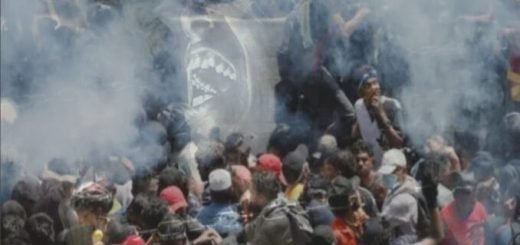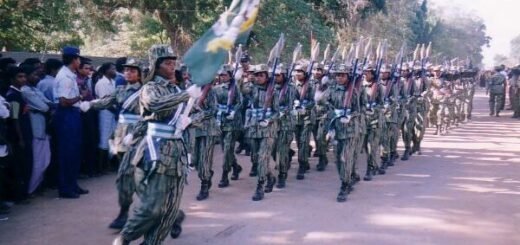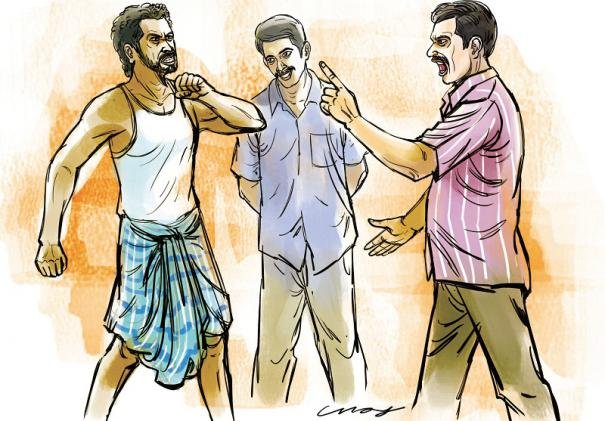Sri Lanka resolution at UNHRC – Blow to the regime – but not enough.
At last, many will think, the so-called international community of governments has recognised the horror of the 2009 genocide in Sri Lanka. But unfortunately the passing of the United Nations Human Right Council (UNHRC) resolution is too little too late. The crucial lesson, drawn out here by Tamil Solidarity, is that nothing would have been achieved without the pressure of the solidarity of ordinary people, the real ‘international community’. On this basis the fight for Tamil rights and a serious and credible investigation into the war crimes must and will go on.
Three years have passed since over 40,000 people were massacred by the Sri Lankan regime in May 2009. Since then the government of Sri Lanka (GoSL) has dismissed accusations of war crimes made by campaigners such as Tamil Solidarity and human rights activists as ‘fraudulent’.
The recent screening of the second part of the Channel 4 Killing Fields documentary, however, brutally exposed both GoSL’s war crimes and the complicit silence of the western ruling class, including the United Nations, during the massacre. In the name of ‘defeating the terrorists’ they all stood by, watching genocide to take place.
The US-led resolution that was passed at the UNHRC today (22 March) is the first time an international body has, if somewhat half-heartedly, admitted that war crimes took place in Sri Lanka. Although the resolution does not do this explicitly, it gives a clear indication in terms of a ‘serious violation of international law’. 24 countries voted in favour of this resolution, with 15 opposing and 8 abstaining.
Tamil-speaking people, however, will not be satisfied with this resolution for the reason that it is too little and too late. The Rajapaksa regime, with so much blood on its hands, should not remain in power.
No real action is taken against the GoSL. The International Monetary Fund is working with the current regime to attack the living conditions of all working and poor people in Sri Lanka. The majority of the western governments, including that of Britain, are still carrying on their dirty dealings with the war criminals.
When the lessons Learnt and Reconciliation Commission (LLRC) was launched and its pathetic results were published Tamil Solidarity and other campaigners pointed out the bogus nature of it. It is nothing more than a government-organised propaganda attempt. It fell far short of the real investigation needed. But even the puny recommendations that it put forward were simply thrown into the dustbin by the GoSL. This is precisely why there was such an outcry among Tamil-speaking people who oppose the shameful attempt to welcome the bogus LLRC in the US-backed resolution.
Now with the mounting evidence of war crimes it is no longer straightforward for any government to deny that this regime has blood on its hands. The real interests of governments in the west do not lie in solving the problems of Tamil-speaking people in Sri Lanka. In reality the maximum such governments hope for is regime change in the south to the benefit of the big business interests they actually represent. Regime change would allow them to justify business dealings with Sri Lanka. In order to prevent a backlash from the working people in their countries, they wish to be seen to give a ‘light warning’ to Sri Lanka. This is particularly true of the Indian government which feels the hot breath of the angry masses in Tamil Nadu especially.
And rightly so! The Indian government not only had its hand in the killing by providing any assistance that GoSL sought – including military equipment, financial support and more – but it was also behind the shameful 2009 resolution passed at UN security council welcoming the Sri Lankan government success in the war.
Pressure from below
The Indian government supported this UNCHR resolution but it did not plan to! In fact it has put up a vigorous campaign to prevent today’s resolution from being tabled at the UNHRC. The truth is it campaigned to mobilise support in opposition to this resolution. But the solidarity of the Tamil-speaking people in Tamil Nadu and other parts of India piled immense pressure on Tamil Nadu politicians and forced them to raise their voice in central government. Without doubt they would be finished In Tamil Nadu if they hadn’t done so. The Indian parliament was brought to a standstill a few days prior to the voting. Finally the prime minister was forced to announce that they would support the resolution.
This provides a great lesson in terms of developing a strategy for the campaign which must now continue with renewed vigour. It shows how we should orientate our work. Governments in India or in the west are not interested in standing up for the poor and the oppressed. The policies of austerity mean years of misery for all of us. As the 2012 budget in Britain shows they will do all they can to advance the wealth of the rich, regardless of the cost to the rest of us. While big business considers Sri Lanka a profitable place for governments will do what they can to protect the Sri Lankan government.
But working and poor people in all countries share the same interests of the struggling Tamil masses in Sri Lanka. This is why we must appeal to these workers and poor in these countries and strengthen our solidarity and joint fightback.
Desperate measures
The Sri Lankan government’s actions demonstrate its desperation and its underlying weakness and its ongoing brutality towards the Tamil masses. It actually went to the lengths of organising a bogus protest against the resolution in Colombo and even in the north. In the north the army stopped buses and forced passengers to hold the government’s placards. Those who remain in the government’s detention camps were bussed in to hold pro-government banners. This is a further horrific example of how people are treated like cattle by the army. There are reports by journalists that the people begged them not to take their photos with pro-government slogans!
It is clear that the GoSL will continue with the IMF’s agenda of attacking the hard-won rights of all working people on the island, while whipping up ‘anti-imperialist’ and chauvinist sentiments in the hope of maintaining its support. No one should be fooled by the government’s rhetoric. It is an acknowledgment that its support is based on sand and as anger grows against its policies this sand can shift.
The passing of this resolution gives us a glimpse of the potential power of the working and poor masses. It provides a hint of the underlying weakness of the GoSL. We must use this opportunity to mobilise the masses to overthrow the current regime and initiate a struggle not only achieve democratic rights, but also to ensure the right to self determination of the Tamil-speaking people is respected. The resolution is nowhere near enough but it reveals much more than the US, UN or anyone else intended.




















